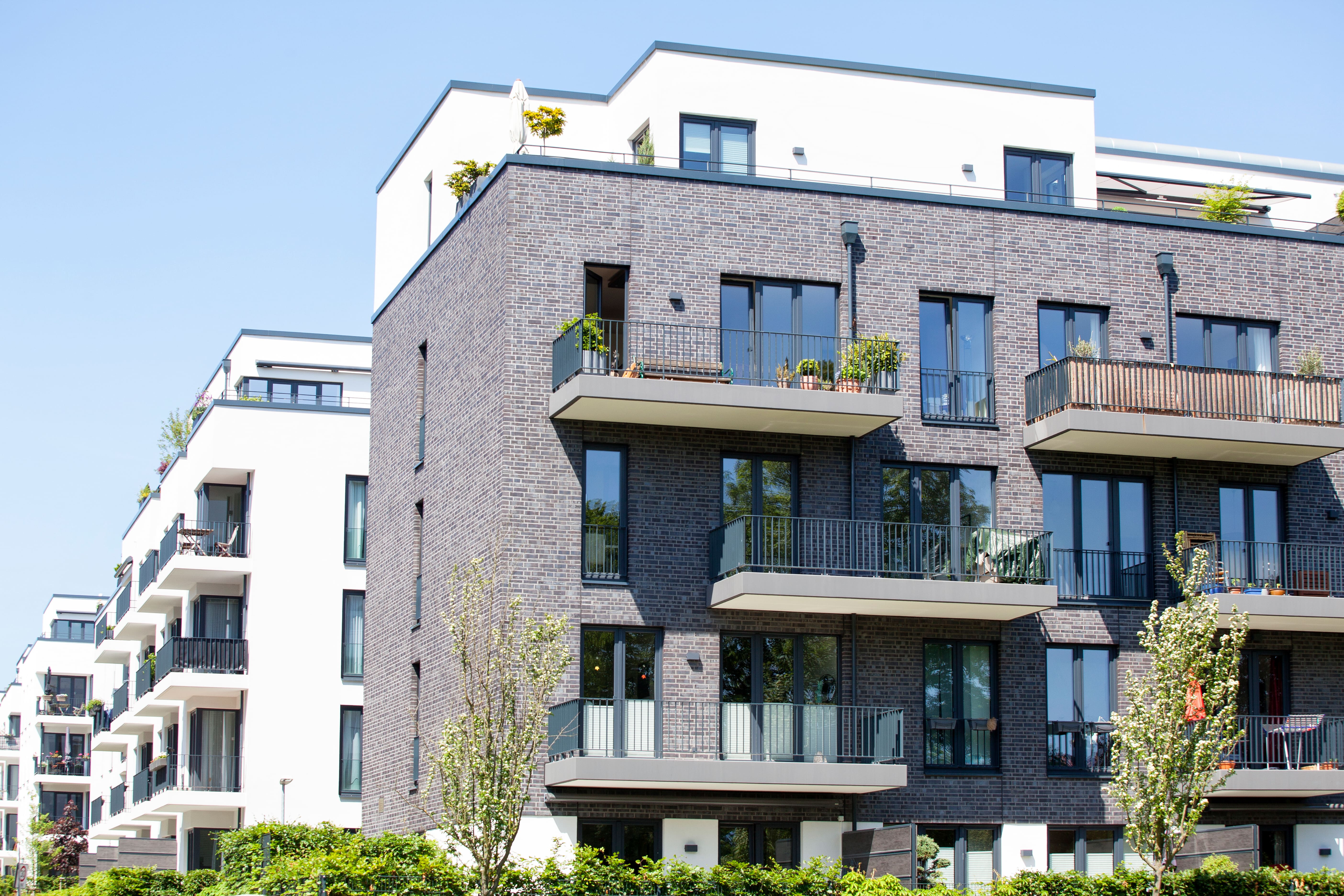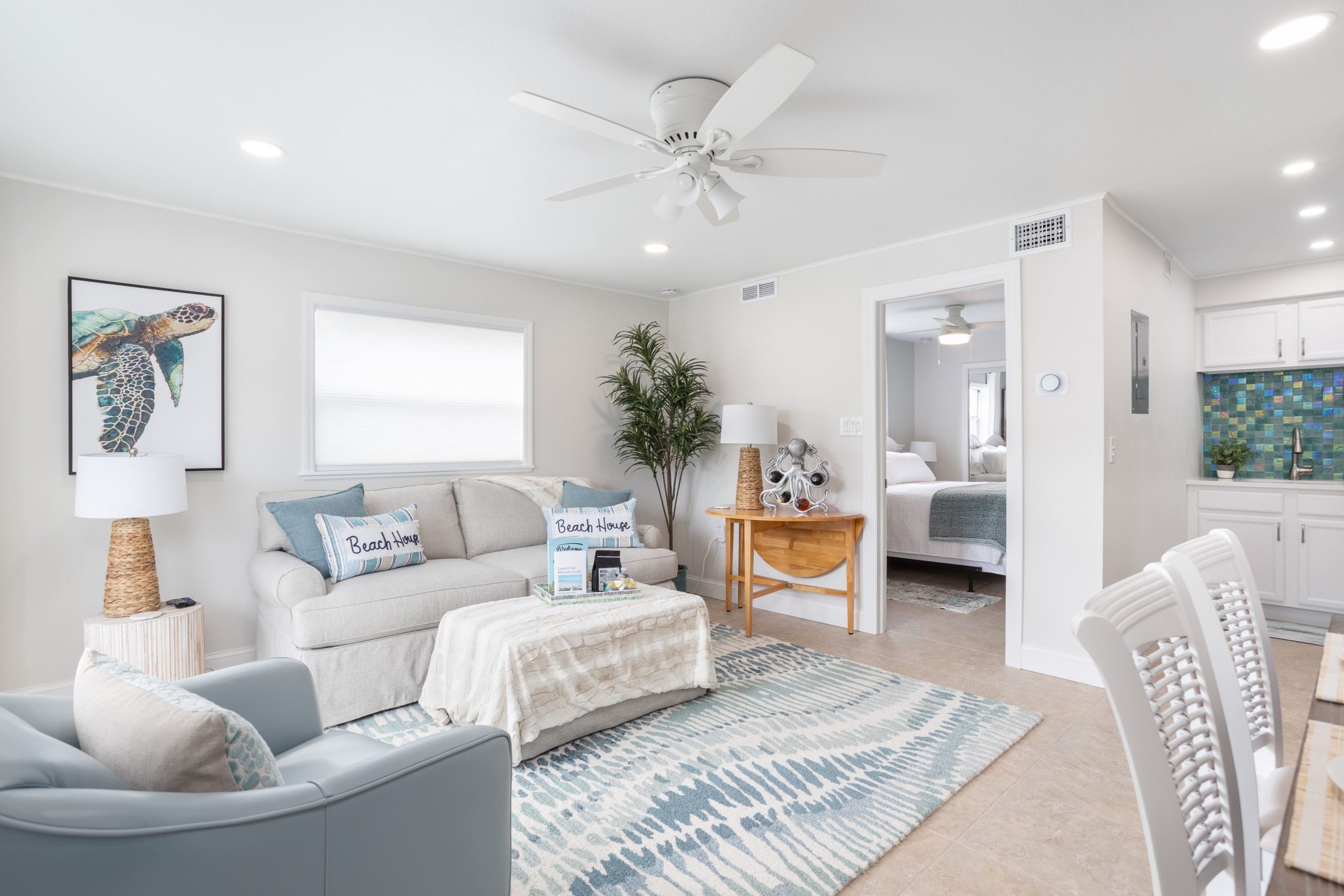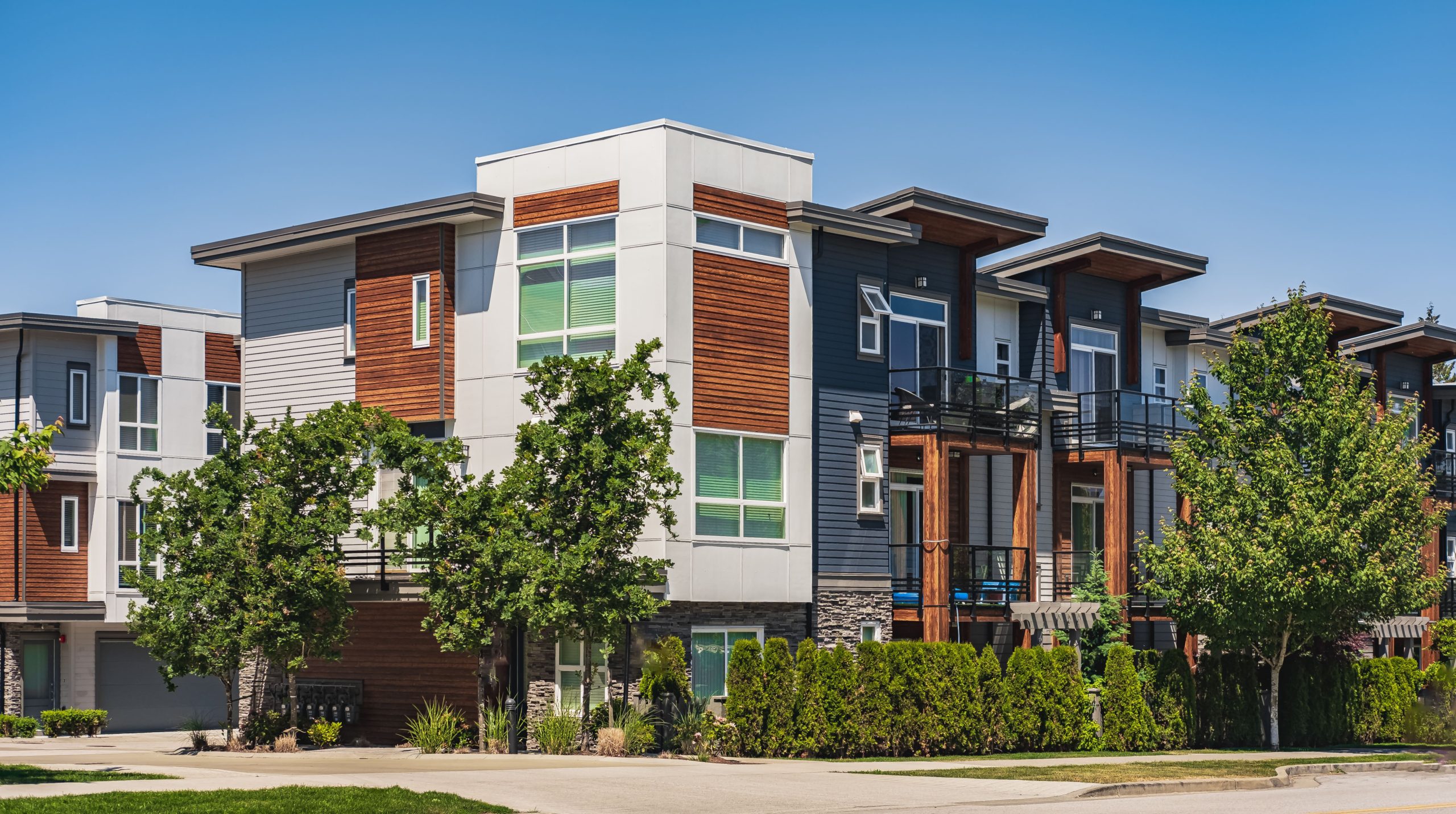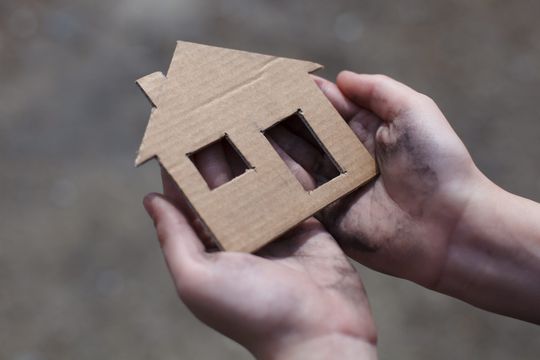
In recent years, there has been a noticeable shift in housing preferences, with an increasing number of individuals choosing condos over traditional apartments. According to the 2019-2020 National and State Statistical Review for Community Association Data, approximately 73.9 million individuals in the United States, constituting approximately 27% of the total population, currently reside in community associations or planned communities, which encompass homeowners associations, condominium communities, and housing cooperatives.
This trend is not merely a matter of coincidence but is rooted in the manifold benefits that condo living offers. Condos offer residents the best of both worlds, combining the convenience of apartment living with the perks of homeownership. One of the most enticing aspects is the sense of community that condos foster, creating opportunities for social interaction and shared amenities that are often unavailable in standalone apartments.
Moreover, the added security and maintenance services provided by condo associations provide peace of mind, allowing residents to focus on their lives without worrying about tedious household tasks. Additionally, condos often boast superior locations, providing easy access to urban amenities and breathtaking views. This evolving preference for condos is not just a housing choice; it’s a lifestyle choice that brings a multitude of benefits to those who embrace it.
If you’ve recently become a resident of a condominium, or perhaps you’re considering making the leap into condo life, it’s absolutely essential to get familiar with the ins and outs of condo rules and regulations. Why, you ask? Well, it’s simple. You’ve made a significant investment in your condo, and you want to make sure you’re getting the most out of it. Plus, who doesn’t want to enjoy the harmonious living experience that condos promise?
In this comprehensive post, we’ll dive deep into the intricacies of condo rules and regulations. We’ll explore everything from the basic rules to the more complex regulations, and by the end, you’ll be navigating your condo community like a seasoned pro. So, buckle up, grab a cup of coffee (or tea, if that’s your preference), and let’s get started on this exciting journey into the world of condominium living!
Key Takeaways
- For a peaceful condo living, regulate your exterior decor, avoid outdoor storage and understand pet restrictions & renting rules.
- To maintain tranquility, limit guests, adhere to noise rules, respect usage of recreational areas.
- Violation of rules may result in fines, know your rights as a condo owner to avoid such penalties!
Suggested Posts
- Exploring The Benefits Of Mid-Rise Apartments
- Comparing Low-Rise, Mid-Rise, and High-Rise Buildings: A Renter’s Guide
- A Deep-Dive Into The Benefits Of Luxury Apartments: Embrace The Upscale
Why Are Condominiums Getting Popular In The USA?
According to the 2019-2020 National and State Statistical Review for Community Association Data, here are some key factors driving the growth of condominiums and community associations:
Embracing Collective Management
Community associations living in the United States have gained widespread acceptance, featuring democratically elected homeowner boards dedicated to serving their communities voluntarily. The research indicates a substantial presence, with 2.4 million community association board and committee members dedicating 86.7 million hours annually to volunteer service.
Outsourcing Public Responsibilities
Many local municipalities face fiscal challenges, leading to the development of communities with built-in associations that assume responsibilities traditionally handled by local and state governments, such as road maintenance, snow and trash removal, and stormwater management. The report reveals that 77% of newly constructed housing is part of a community association, with homeowners collectively contributing $27.4 billion to association reserve funds for common property repair, replacement, and improvement (e.g., swimming pools, elevators, and street resurfacing).
Expanding Access to Affordable Housing
To increase homeownership rates in the U.S., there has been a consistent effort, especially since the 1960s, to offer lower-cost entry housing options, particularly through condominiums. Condominium communities constitute 35-40% of the total reported community associations, serving as an accessible housing choice, particularly for first-time homebuyers.
Understanding the Importance of Condo Rules and Regulations
Results from the 2020 Homeowner Satisfaction Survey reveal that a significant majority of homeowners and condominium association residents, totaling 89%, have rated their overall experience of living in a community association as either “very good” (40%), “good” (30%), or “neutral” (19%). Condo rules and regulations are essential for maintaining a harmonious and well-functioning condominium community. Here are several reasons why these rules are important:
1. Preservation of Property Values: Condo rules help ensure that all residents maintain their properties in a certain way. This consistency can prevent individual units from becoming eyesores or falling into disrepair, which can negatively impact property values for everyone in the community.
2. Community Safety: Rules and regulations often include safety measures such as fire codes, building maintenance standards, and security protocols. These measures help protect residents and their property.
3. Noise Control: Condos often have shared walls, floors, and ceilings. Rules about noise levels and quiet hours are crucial to ensure that residents can live peacefully without disruptions from neighbors.
4. Fair Allocation of Costs: Many condo communities have common areas and shared expenses like maintenance, landscaping, and utilities. Rules govern how these costs are allocated among unit owners, ensuring fairness and transparency.
5. Aesthetic Harmony: Rules often dictate the appearance of the units and common areas. This helps maintain a consistent and appealing aesthetic for the community.
6. Conflict Resolution: Rules provide a framework for resolving disputes among residents. Having clear guidelines in place can prevent conflicts from escalating and promote peaceful coexistence.
7. Tenant Behavior: If some units are rented out to tenants, rules can outline expectations for tenant behavior and responsibilities, which helps prevent issues caused by transient occupants.
8. Responsible Governance: Condo associations typically have a board of directors or a management team responsible for enforcing rules and making decisions. These rules ensure that the governance of the community is fair and transparent.
9. Liability Protection: Rules often include liability clauses that protect the condo association and individual unit owners from legal issues related to accidents or injuries that occur on the property.
10. Resale and Rental Marketability: Prospective buyers and tenants often consider a condo’s rules and regulations when making their decisions. A well-regulated community can be more attractive to potential occupants, which can benefit current unit owners when selling or renting their units.
11. Environmental and Energy Conservation: Some rules may include guidelines for energy-efficient appliances, recycling programs, and other eco-friendly practices, promoting sustainability within the community.
12. Community Cohesion: Rules can help foster a sense of community by encouraging residents to respect one another’s rights and property, creating a more pleasant living environment.
Understanding the Rule-Makers: The Condominium Association Board
The roles and responsibilities of a condo association board can vary depending on the specific bylaws and regulations of the association, but here are some common roles and responsibilities:
Governance and Leadership
- Setting the overall direction and policies for the condominium community.
- Ensuring compliance with governing documents, bylaws, and applicable laws.
- Overseeing and managing the affairs of the association.
Financial Management
- Developing and managing the association’s budget.
- Collecting and managing common charges or dues from unit owners.
- Ensuring the financial health and stability of the association.
Maintenance and Repairs
- Maintaining and repairing common areas and amenities.
- Managing contracts for landscaping, snow removal, and other services.
- Addressing maintenance issues in a timely manner.
Rule Enforcement
- Enforcing association rules and regulations.
- Resolving disputes among unit owners.
- Imposing fines or penalties for violations when necessary.
Meetings and Communication
- Holding regular board meetings and annual meetings for unit owners.
- Keeping unit owners informed about association matters.
- Providing transparency in decision-making processes.
Insurance and Risk Management
- Obtaining and maintaining appropriate insurance coverage for the association.
- Managing claims and addressing insurance-related issues.
- Identifying and mitigating potential risks to the association.
Legal Compliance
- Ensuring compliance with local, state, and federal laws.
- Addressing legal matters, such as contracts and disputes.
- Consulting with legal counsel as needed.
Reserve Fund Planning
- Developing and maintaining a reserve fund for major repairs and replacements.
- Planning for the long-term financial stability of the association.
Vendor and Contractor Management
- Selecting and overseeing vendors and contractors for maintenance and repairs.
- Negotiating contracts and ensuring quality of work.
Record-Keeping and Documentation
- Maintaining accurate records of association activities and finances.
- Providing access to records for unit owners as required by law.
Election and Succession Planning
- Organizing and overseeing board elections.
- Planning for the succession of board members.
Community Engagement
- Promoting a sense of community and cooperation among unit owners.
- Organizing social events and activities.
- Encouraging volunteerism and participation.
Environmental and Sustainability Initiatives
- Implementing eco-friendly and sustainable practices where feasible.
- Managing recycling programs and energy-efficient improvements.
Emergency Preparedness
- Developing and maintaining emergency plans and procedures.
- Responding to crises or disasters affecting the condominium community.
Financial Reporting
- Providing regular financial statements to unit owners.
- Ensuring transparency in financial matters.
Difference Between Condominium Association Board and Homeowner’s Association
| Aspect | Condominium Association Board | Homeowner’s Association |
| Type of Housing | Typically for condominiums or multi-unit buildings where units are individually owned. | Typically for single-family homes or planned communities with individually owned houses. |
| Membership | Composed of unit owners or condominium residents who serve on the board. | Composed of homeowners who may or may not serve on the board. |
| Governing Documents | Governed by the Condominium Declaration and Bylaws, which outline specific rules and responsibilities. | Governed by Covenants, Conditions, and Restrictions (CC&R) and Bylaws that specify rules and regulations. |
| Responsibilities | Manage and maintain common areas, building exteriors, and shared amenities. May also oversee unit-specific issues related to common elements. | Oversee the maintenance and management of common areas, community facilities, and shared services. Typically, individual homes and yards are maintained by homeowners. |
| Assessments | Collect assessments or condo fees from unit owners to cover common area expenses, repairs, and services. | Collect assessments or dues from homeowners to fund common area maintenance, landscaping, and community services. |
| Decision-Making | Decisions are made by the Condominium Association Board, often with input from unit owners through meetings and voting. | Decisions are made by the Homeowner’s Association Board, and homeowners may have opportunities to provide input and vote on certain matters. |
| Common Areas | Responsible for maintaining common areas within the condominium complex, such as lobbies, hallways, parking lots, and shared facilities like gyms or pools. | Responsible for maintaining common areas and amenities within the community, such as parks, playgrounds, roads, and community centers. |
| Exterior Maintenance | Typically responsible for exterior maintenance of the entire building or complex, including roofing, siding, and landscaping. | Exterior maintenance of individual homes is usually the responsibility of homeowners, but the HOA may have guidelines and restrictions. |
| Enforcement of Rules | Enforce rules and regulations outlined in the Condominium Declaration and Bylaws, which may include pet policies, noise restrictions, and architectural guidelines. | Enforce CC&Rs and Bylaws, which often include rules about property appearance, landscaping, and use of common areas. |
| Disputes Resolution | Handle disputes related to common areas, shared amenities, and adherence to condo rules and regulations. | Address disputes among homeowners regarding compliance with HOA rules and property-related matters. |
| Meetings and Communication | Hold regular board meetings and may have open forums for unit owners to discuss issues and concerns. | Conduct board meetings and may organize community meetings to discuss HOA matters with homeowners. |
| Costs and Fees | Unit owners pay condominium fees, which can vary based on the size and amenities of the complex. | Homeowners pay HOA dues, which vary depending on the services and amenities provided by the association. |
| Architectural Control | May have control over architectural changes and improvements to the exterior of individual units or buildings. | Often has architectural guidelines and approval processes for home modifications, landscaping, and additions. |
| Community Services and Amenities | May provide shared amenities like pools, fitness centers, and security services. | Often offers community services and amenities such as parks, trails, landscaping, and security patrols. |
How Does A Condominium Association Work?
The workings of a condo association are pretty much similar to those of an HOA, except for the ownership part. Both are community associations with the responsibility of setting up rules and regulations that dictate the lifestyle within the community. They both collect fees to cater for basic operating expenses.
Let’s delve deeper into the workings of a condo association.
Rules of the Condo Association
Upon purchasing a condo, you are bound by a restrictive covenant with the condo association. This implies that you agree to adhere to the association’s declarations, rules, bylaws and amendments.
The main set of rules of a condo association is found in a governing document known as the Declaration of Covenants, Conditions and Restrictions (CC&Rs). The CC&Rs primarily set guidelines for how you can utilize the building or complex, including the common areas and perhaps your individual condominium.
While the specific CC&Rs vary from one building or complex to another, most include rules for acceptable behavior in the common areas. Many of these rules are obvious – for instance, you are not allowed to destroy, damage or vandalize any part of the complex, including its exterior and common elements.
You may also need to ensure that you do not block any entryways or walkways – including the sidewalk in front of your detached condo or the hallway of your unit’s floor – with furniture, boxes, a bicycle, trash cans or other obstructions. And you may not be allowed to grill out except in designated spaces.
The CC&Rs may also cover the following areas:
- Noise: Your condo association will likely have specific rules prohibiting you from engaging in activities in your unit or the common areas that would be considered intrusively loud to other residents.
- Pets: Your condo association may not allow pets. If it does, you may be limited in the type of pets you can have, how many pets you can have, and the common areas that pets are allowed in. Most likely, you’ll need to have your dog – or cat – on a leash when in those common areas, and you’ll probably be required to keep your pets up to date on their vaccinations.
- Garbage disposal: If your detached condo is in a neighborhood with curbside pickup, you’ll most likely be required to store your trash and recycling in acceptable bins. You’ll probably also be expected not to leave the bins on the street after garbage day. If you reside in a high-rise or other condo building, you may be forced to dispose of your garbage in the garbage chute or the dumpster assigned to your building.
- Your condo unit: Obviously, you can’t renovate the common area to suit your personal tastes and design aesthetic. But you may also need the condo association’s permission before you can remodel your kitchen or bathroom or transform your individual unit into an open floor plan. Your home improvement or renovation project must be approved by the association board members so they’ll know you aren’t knocking down any load-bearing walls or otherwise jeopardizing the structural or architectural integrity of the unit.
All this might seem like too much control over your personal property. However, the condo association is a legal entity, and its board of directors has the power to enforce its rules and regulations – as well as impose fines for violations – as long as those CC&Rs don’t violate federal or state laws.
At its core, a condo association exists to safeguard the well-being and comfort of you and your fellow condo owners or residents. Additionally, it strives to uphold property values to ensure that your community remains a solid financial investment.
Condo Association Fees And Other Costs
Just like an HOA, your condominium association will require regular contributions from you and other members to cover essential operational costs. The amount you’ll be asked to pay in monthly, quarterly, or yearly dues – also referred to as common charges – will depend on factors such as the location and size of your condominium complex, as well as the amenities your association provides.
Occasionally, your association might need to collect a one-time fee, or special assessment, to cover unforeseen expenses.
Here’s a breakdown of where your condo association fees typically go:
- Operating fund: This is the fund where your common charges are directed. It is used for the general maintenance of the building or complex, including shared areas and common elements like sidewalks, elevators, and possibly fitness equipment. It also covers general repairs to the exterior of your unit’s building or, if your condo is detached, your single-family home or townhome.
- Reserve fund: This fund acts like a savings account for unexpected expenses and necessary upgrades. A portion of your common charges is used to maintain and replenish this fund when necessary.
- Special assessment: This is a one-off fee, typically collected when an unforeseen event such as a natural disaster or other emergency necessitates an urgent repair that goes beyond the association’s annual budget. A special assessment might also be required if a community project like repaving a neighborhood road or resurfacing the tennis courts goes over budget. The association usually has to vote to approve a special assessment. Regardless, you’ll be required by the CC&R to pay the special assessment, which can cost hundreds or sometimes thousands of dollars, necessitating everyone’s contribution.
Just as it enforces its CC&Rs, a condo association has the legal power to place a lien or encumbrance on condo units and even initiate foreclosure proceedings if a condo owner fails to pay their fees.
Insurance Covered by the Condo Association
A portion of your condo association fees is allocated towards the condo association insurance policy. This policy is responsible for covering any damage to the exterior areas of the building or complex. This includes areas such as the basement, roof, parking structure, and elevator, as well as amenities like the clubhouse, community pool or gym.
The condo association insurance policy also provides liability protection. This means that if a resident or guest suffers an injury in a common area of the complex and decides to sue for compensation, the legal or medical costs are covered.
However, it’s crucial to note that condo association insurance is not the same as individual condo insurance. The condo association insurance policy covers the areas outside of your home, but you are still responsible for the maintenance and repair of your condo’s interior. Therefore, you should consider getting an individual condo insurance policy, which operates similarly to homeowners insurance.
Decoding Condominium Association Documents

Condominium Declaration
A condo or townhouse declaration is the official document that establishes the existence of the association as a Not for Profit Corporation. It legally outlines the common elements and individual units, and is recorded in the county’s land records. The declaration typically comprises the articles that define the association. For instance, it specifies the percentage interest held by each unit owner in the condominium, determining their voting rights and condo fee percentage. It also addresses matters such as common area rights, the association’s approach to maintenance, and how assessments are utilized. Think of the declaration as the primary legal document governing the association, akin to a “Constitution,” alongside the condo bylaws.
Condo Bylaws
HOA and condo bylaws provide detailed guidelines for the everyday operations of the association. This document delineates:
– The membership criteria for association members
– The process and timing of board of directors elections
– The schedule for meetings
– Eligibility criteria for voting
– The legal requirements for achieving a quorum
– The roles and responsibilities of the board
– Provisions for the maintenance fund
Understanding the relationship between condo bylaws and the declaration can be challenging. Here are a couple of examples:
– While the Declarations broadly define the Board and its role, the bylaws delve into specifics regarding individual roles, term lengths, the process for electing the President, and may itemize board powers.
– The Declarations set forth the rules for using and occupying the units and common areas, whereas condo bylaws outline the remedies in case of breaches of these rules.
Please Note: It is advisable for association boards to periodically review condo bylaws to ensure their continued relevance and modernity, amending them as necessary. Condo bylaws should also include a provision explaining how they can be amended.
Condo Association Rules and Regulations
Rules and regulations serve as guidelines for owners, their tenants, and guests to follow. They encompass various aspects such as pet regulations, requirements for installing satellite dishes, rules regarding flags and holiday decorations, among others.
Best Practices To Follow Before Making Rules
Before delving into the rules and regulations, adhering to best practices is crucial for a seamless rule-making process. By following these best practices, the condo association can create rules that are effective, fair, and beneficial to all residents.
Understanding the Reason Behind the Rule
Comprehending the rationale behind a rule is fundamental to guarantee its effectiveness. Knowing the “why” of a rule can help us decide if it’s the right tool for the job and evaluate its effectiveness and relevance in different contexts.
By identifying the “why” behind a rule, we can ensure that it serves its intended purpose and is beneficial for the entire community.
Conveying the Purpose and Advantages
Effectively articulating the purpose and advantages of a rule is pivotal in fostering compliance and understanding among residents. By effectively communicating the purpose and benefits of a rule, we can address any concerns or objections and encourage better adherence to the rule.
This ultimately leads to a more harmonious and peaceful living environment for all homeowners.
Clarifying the Process
To foster resident engagement, it’s important to elucidate the process of implementing a rule. By providing a clear understanding of how the rule was created and how it will be enforced, the residents can have a better grasp of the rule’s purpose and its potential impact.
This transparency and understanding lead to better compliance and collaboration among residents.
Emphasizing the Long-Term Benefits and Values
Reinforcing the long-term benefits and values of rules helps maintain property values and community harmony. By emphasizing the long-term advantages and values, we can shape and modify behaviors based on their consequences and motivate people to strive for higher goals.
This ultimately leads to the creation and strengthening of behaviors needed to secure desired results.
Legal Rights for Condo Owners

As a condo owner, you are endowed with numerous legal rights safeguarding your interests and promoting a balanced and respectful living environment. It’s essential to understand and exercise these rights to ensure a harmonious and well-maintained living experience.
The Right To Access Condo Documents
Condo owners are entitled to access association documents, including the condominium declaration, by-laws, and rules and regulations. Access to these documents is essential for understanding the rules and regulations that govern your community and your rights and responsibilities as a condo owner.
The Right To Equality and Non-Discrimination
Condo owners are entitled to impartial treatment and a discrimination-free environment. This means that all residents should be treated fairly and without bias in all aspects of condo living, including access to documents, meetings, elections, disciplinary hearings, and arbitration.
By understanding and exercising this right, you can ensure a respectful and harmonious living environment for all residents.
The Right To Notice and Meetings
Condo owners are entitled to receive meeting notifications and participate in them. This right allows residents to stay informed about decisions affecting their community and have a say in the decision-making process.
By exercising this right, you can ensure that your voice is heard and that your interests are represented in your condo community.
The Right To Run and Vote During Elections
As a condo owner, you are entitled to contest for board positions and participate in elections. This democratic right allows you to get involved in the governance of your community and ensure that your interests are represented.
By exercising this right, you can contribute to the decision-making process and help shape the future of your community.
The Right To Protest
Condo owners, also known as unit owners, are entitled to voice their objections against the association’s decisions. This right allows residents to voice their concerns and objections to decisions that they feel are unfair or detrimental to the community.
By exercising this right, you can help ensure that your community is governed fairly and in the best interests of all residents.
The Right To Disciplinary Hearings and Arbitration
In the event of disagreements or disciplinary actions, condo owners are entitled to disciplinary hearings and arbitration. This right ensures that residents have a fair and impartial process to present their case and receive a decision based on the evidence presented.
By understanding and exercising this right, you can protect your interests and ensure a fair resolution to any disputes or disciplinary actions.
File Legal Action Against the Association
If need be, condo owners are entitled to take legal action against the association, especially in cases involving disputes over condo association fees. This right allows residents to seek legal recourse if they feel they have been wronged by the association or if the association has failed to fulfill its responsibilities.
By understanding and exercising this right, you can protect your interests and ensure that your condo community is governed fairly and effectively.
Common Condo Rules and Regulations
Common condo rules and regulations are essential for maintaining order, safety, and harmony within a condominium community. These rules are typically outlined in the condominium association’s governing documents, such as the bylaws and declaration, and are enforced by a board of directors or a property management company. Let’s elaborate on each of these common condo rules and regulations:
1. Regulate your exterior decor items/Architectural maintenance: Condo associations often have guidelines regarding the appearance and maintenance of the exterior of condo units. This can include rules on the type of window coverings, paint colors, landscaping, and architectural alterations allowed. These rules ensure a cohesive and aesthetically pleasing appearance for the entire complex.
2. Banning outdoor storage: To maintain a neat and tidy environment, many condo associations prohibit outdoor storage of personal items such as bikes, furniture, and gardening equipment. This helps prevent clutter in common areas and maintains the overall appearance of the community.
3. Pet restrictions: Condo associations may implement rules related to pets, such as limitations on the number and size of pets allowed, breed restrictions, and leash requirements. Some condos even have designated pet-friendly areas within the community.
4. Renting your condo out might be restricted: Many condo associations have restrictions on renting out units. They may limit the number of rentals allowed, require background checks for tenants, or specify the minimum lease term. These rules are often in place to maintain a stable and owner-occupied community.
5. Limiting guests: Some condos have rules about the number of guests residents can have, how long guests can stay, and whether they can use common facilities. These rules help manage overcrowding and ensure that common areas are accessible to all residents.
6. Common areas: Rules regarding common areas, such as swimming pools, gyms, and lounges, dictate their usage, hours of operation, and any reservation or fee requirements. These rules promote fair access and safety in shared spaces.
7. Noise and nuisances: Condo associations typically establish noise guidelines to prevent disturbances to neighbors. These rules may specify quiet hours, noise levels, and penalties for excessive noise. Nuisance rules address behavior that disrupts the peaceful enjoyment of the community.
8. Garbage disposal: Proper disposal of trash and recycling is crucial to maintain cleanliness and prevent pests. Condo associations often have rules regarding trash collection schedules, recycling practices, and disposal of large items.
9. Recreational areas: If the condo complex has recreational facilities like tennis courts, playgrounds, or barbecue areas, rules may be in place to ensure their safe and appropriate use, as well as maintenance responsibilities.
10. Vandalism: Vandalism is typically prohibited, and residents are expected to report any incidents promptly to maintain the integrity and aesthetics of the property.
11. Demeanor: Some associations have rules regarding resident conduct and behavior within the community. This may include guidelines on politeness, respect for others, and adherence to association policies.
12. Operating motor vehicles: Rules may govern the use and parking of motor vehicles within the condo community. This can include speed limits, designated parking spaces, and restrictions on commercial vehicles or recreational vehicles.
13. Parking: Condo associations often allocate parking spaces to residents, and rules dictate how these spaces are assigned, used, and maintained. Violations can result in towing or fines.
14. Penalties: Condo associations typically outline penalties for rule violations, which may include fines, warnings, or, in extreme cases, legal action. These penalties encourage compliance with the established rules and regulations.
Consequences of Violating the Condo Rules, Regulations, and Bylaws
Condo bylaws serve as overarching principles for living within the association and outline consequences for members who breach these regulations. When you become a part of the association, you implicitly agree to adhere to the conditions detailed in these governing documents. Given their legal binding, the Association has the authority to take action against any violations. Here are some examples of actions the board may take:
1. Imposing fines on owners.
2. Entering a unit to remove any structures that violate the bylaws, with the owner covering the expenses.
3. Initiating legal proceedings to rectify violations, again at the owner’s expense.
4. Terminating the owner’s right to property ownership, which may involve selling the property with proper notice.
Similarly, if owners or their tenants violate any rules or regulations, the association is likely to levy fines on the owner, with or without prior warning.
Owners should view the governing documents with the same pride and respect as our country’s constitution. The objective is to foster an exceptional community for all residents. Remember that you have the power to influence change. If you believe that the board should amend any documents or rules, take the time to understand the amendment process and become actively involved. Attend meetings, share your ideas with fellow community members and the board, and even consider becoming a board member yourself. Your participation can make a meaningful impact on the community’s rules and regulations.
Let’s Wrap Up

In conclusion, understanding condo rules and regulations is crucial for a harmonious living experience in your condominium community. These rules, often crafted with the collective interest of all residents in mind, serve as a roadmap to navigating the intricacies of condo living. The legal rights of condo owners are a vital aspect of condominium living. They safeguard your interests, ensure fair treatment, and provide a channel for voicing concerns or objections. By being aware of these rights, you can actively participate in your community, influence decisions, and protect your investment.
Sources
- https://www.globenewswire.com/Tracker?data=rYA79_j4pkLWz9mp4KCuAFpMSR6akhn7XhaTq2oXPPUaG_5KAqNHRnfSsSLzSPHvs5uaTlO3ZKEyIhj9zjnyAjUynw6U9lp69ia_CdNpjvv8iIGP4V-SenpGqzbxZxwgXVJfvJwcINxqAedHZf7B5wuPZPLwnAInwnDTOoRb12P3oVeXkLf4YPWS13iDQ1ijZUpwxqARNL-XeKulNFq5gQoajFMkPsaiAuURGcH4uAiNdfMiSy9Gv0820_J1NPCb
- https://www.federaltitle.com/condominium-by-laws-why-are-they-so-important/
- https://www.investopedia.com/terms/c/condominium.asp
- https://www.rocketmortgage.com/learn/condo-association
- https://www.calalaw.com/blog/enforcing-condominium-association-rules-bylaws/
- https://www.wilsonblanchard.com/blog/common-condo-rules-why-theyre-so-prevalent-here-to-stay/
- https://hillcrestmgmt.com/understanding-condo-association-rules-regulation-bylaws-decs/
FAQs
1. What is the difference between a condominium and an apartment?
Answer: Following are the differences between a condominium and an apartment:
- Ownership: The primary difference lies in ownership. In an apartment, tenants typically rent living spaces from a landlord or property management company. In contrast, a condominium (condo) involves individual ownership of a unit within a multi-unit complex. Condo owners have a deed and can sell or mortgage their units.
- Maintenance and Amenities: Condominiums often provide shared amenities and services like gyms, pools, and landscaping, which are jointly maintained by condo owners through association fees. In apartments, these amenities are usually the responsibility of the landlord or property management.
- Governance: Condo communities are governed by a condo association or HOA (Homeowners’ Association), while apartment complexes are managed by landlords or property management companies.
- Investment Potential: Condos can be considered an investment, as owners can build equity and potentially profit from property value appreciation. Apartment living is generally seen as more transient and less of an investment.
2. Are condo bylaws legally binding?
Answer: Yes, condo bylaws are legally binding documents. They are part of the condominium’s governing documents and are enforceable under both state or provincial laws and local regulations. Condo bylaws set out rules and regulations governing the behavior of condo residents and the operation of the condominium association. Violations can lead to penalties or legal action.
3. Are there any options for changing the condominium rules and regulations?
Answer: Condo rules and regulations can typically be changed through a democratic process within the condominium association. Common steps include:
- Board Approval: The condo association’s board of directors often has the authority to propose rule changes.
- Owner Meetings: Rule changes may require a vote at an association meeting. The specific voting requirements are usually outlined in the governing documents.
- Amendment Process: Condo bylaws often include a process for amending rules. This process typically involves notifying all owners, holding meetings, and achieving a certain level of owner approval, often a supermajority vote.
4. What makes a good condo rule?
Answer: Here are a few conditions that all the condo rules and regulations should align with:
- Clear and Specific: Good condo rules are clear, specific, and easy to understand. Ambiguity can lead to disputes.
- Fair and Reasonable: Rules should be fair and reasonable, balancing the interests and rights of all residents.
- Enforceable: Rules should be enforceable, with clear consequences for violations.
- Consistent: Rules should be applied consistently to all residents.
- Reflective of Community Needs: Rules should address the unique needs and circumstances of the condominium community.
- Responsive to Changing Needs: Rules should be flexible enough to adapt to changing circumstances or issues within the community.
5. Why are condo bylaws important?
Answer: Here are some reasons behind why condo bylaws are important:
- Order and Harmony: Bylaws establish a framework for maintaining order and harmony within the condominium community.
- Property Values: Enforced rules help protect property values by ensuring that the community remains desirable to residents and potential buyers.
- Legal Compliance: Bylaws ensure that the condominium complies with relevant laws and regulations.
- Dispute Resolution: Bylaws provide a basis for resolving disputes among residents.
- Association Governance: Bylaws define the powers and responsibilities of the condo association and its members.













